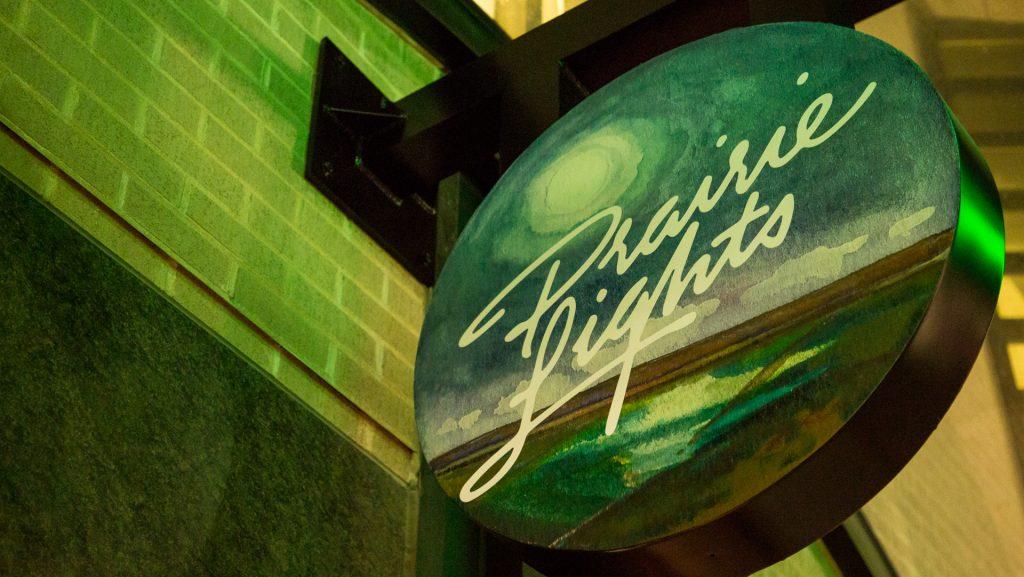Prairie Lights will host celebrated author Darcy Maulsby as she reads from her new book, *A Culinary History of Iowa*, at 7 p.m. Friday. Maulsby’s book ties together Iowan history, culture, and favorite recipes.
By Katie Goodale
Darcy Maulsby, a local author and farmer, combines her unique farming background with her literary prowess to create a scrumptious reading experience as she combines Iowan history with some of the state’s most famous recipes.
Prairie Lights, 15 S. Dubuque St., will host her at 7 p.m. Friday as she reads from her new book, *A Culinary History of Iowa.* Her book focuses on recipes that are native to Iowan tradition, tracing the story behind each. Recipes include Iowa ham balls, Steak de Burgo, sweet corn, and many more, and her book has earned 5-star reviews on Amazon.
*A Culinary History of Iowa* goes back as many as 150 years in a search for the culinary fingerprints of Iowan traditions. Many are focused on the deep agricultural roots of the state as well as its ethnic influences. In addition to the recipes, Maulsby’s piece showcases older photography of the state.
Shannon Latham, a blogger and friend of Maulsby, discussed how she assisted in the creative process behind the book and praised Maulsby for the final product.
“I greatly admire Darcy for the way she uniquely combines her passions of cooking and history,” Latham said. “Her unique writing style allows readers to be entertained while they’re learning. That’s a special gift.”
When choosing which recipes to include in the book, Maulsby chose those that were undeniably Iowan or had strong roots in the Midwest. *A Culinary History of Iowa* focuses not just one white-food culture but also on minority heritage in Iowa as it showcases many ethnic foods that have become a part of the Iowa culture.
Much of the inspiration for the book came from Maulsby’s agricultural background. She helps to operate a farm in Calhoun County, where her family has worked the land since 1889, and she runs her own marketing company. She has been a part of agriculture business for 20 years and has worked with such organizations as the Iowa Farm Bureau Federation, the National Pork Board, and Syngenta.
Maulsby believes that in order to truly understand Iowa’s history, one must also understand the farming culture that permeates every aspect of Iowa life. These ideas, and her personal farming history, were contributing factors to her decision to write the book.
“As Iowa’s storyteller, a fifth-generation Iowa farmer, and lifelong foodie, I believe anyone who eats has a connection to the things I’m passionate about, including food, farming, and Iowa history,” Maulsby wrote in an email to *The Daily Iowan.* “I love sharing stories of the land and the food that sustains us while taking readers and audiences on a surprising journey through Iowa’s rich history and distinctive culture.”
Maulsby has previously written two other books, both of which have the same sort of themes as *A Culinary History of Iowa.*
“I was motivated to write *A Culinary History of Iowa* for the same reason that inspired me to write my Iowa nonfiction history books, including *Calhoun County* and *Dallas County*, the home of Nile Kinnick). You protect what you love. I love Iowa history, farming, small-town life, and Iowa food traditions and wanted to capture these remarkable stories, recipes, and images while there’s still time to preserve them for future generations.”
Prairie Lights event coordinator Kathleen Johnson is enthusiastic about Maulsby’s reading, saying food says a lot about the culture of a region.
“Local history is important, and food says a lot about people who live there; from their local agriculture to cultural heritage to their economic status,” she said. “Maulsby’s book covers not just food but how it’s eaten and the traditions that go with the region.”



